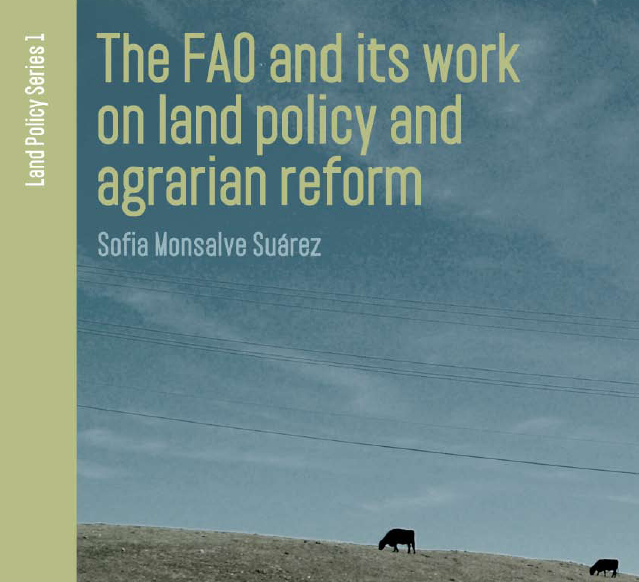Focal point
Location
The Food and Agriculture Organization of the United Nations leads international efforts to defeat hunger. Serving both developed and developing countries, FAO acts as a neutral forum where all nations meet as equals to negotiate agreements and debate policy. FAO is also a source of knowledge and information. We help developing countries and countries in transition modernize and improve agriculture, forestry and fisheries practices and ensure good nutrition for all. Since our founding in 1945, we have focused special attention on developing rural areas, home to 70 percent of the world's poor and hungry people.
Members:
Resources
Displaying 3061 - 3065 of 5074(ALAWUC) تقرير الدورة الخامسة لهيئة الزراعة واستخدام الأراضي والمياه للشرق الأدنى
Meeting symbol/code: ALAWUC/NE/08
(ALAWUC) تقرير الدورة الخامسة لهيئة الزراعة واستخدام الأراضي والمياه للشرق الأدنى
Meeting symbol/code: ALAWUC/NE/08
(ALAWUC) تقرير الدورة الخامسة لهيئة الزراعة واستخدام الأراضي والمياه للشرق الأدنى
Meeting symbol/code: ALAWUC/NE/08
(ALAWUC) تقرير الدورة الخامسة لهيئة الزراعة واستخدام الأراضي والمياه للشرق الأدنى
Meeting symbol/code: ALAWUC/NE/08
The FAO and its work on land policy and agrarian reform' outlines FAOs stance on gender and land rights
[September 2008]
Within this report, the FAO outlines its efforts to reinforce local institutions and promote policies and legislation that aim for fairer access for both women and men to natural resources (particularly land, water, fishing and forestry) and to the relevant economic and social resources.
It goes on to approach the reasons why land tenure should be taken into account in project design, highlighting ecological issues, questions of gender, conflict and migrations, and the relationships between them.







